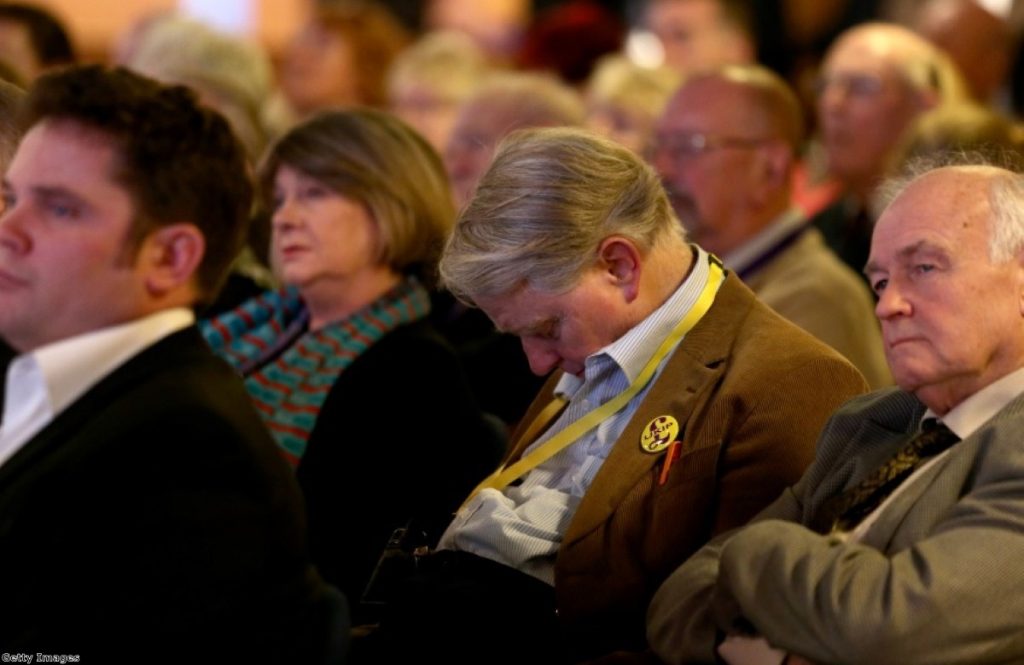The importance of being idle: Why Ukip’s MEPs should trumpet their laziness
The Liberal Democrats' newfound mission of Ukip-bashing is a good idea in general. But attacking Nigel Farage and his party's MEPs for laziness in Strasbourg risks backfiring.
Nick Clegg will use a speech at the Centre for European Reform thinktank today to accuse Ukip's MEPs of being "lazy". His beef is that they "refuse to roll up their sleeves and get down to work".
"Nigel Farage and deputy leader Paul Nuttall rarely turn up to vote in the European parliament, despite being happy to take their tax-payer-funded salaries," Clegg will say.
The evidence for this accusation is that Farage hasn't tabled an amendment on any EU legislation since July 2009. Ukip's voting and turnout records, the Lib Dems say, are worse than any other party in the European parliament.


These criticisms would be damaging to politicians belonging to Britain's mainstream political parties. But they are unlikely to be vote-losers for Ukip's core support. "Our objective is not to spend time voting endlessly for more European legislation," Farage pointed out on the Today programme this morning. When you're a eurosceptic in a parliament despised and reviled in equal measure, laziness can actually be presented as a virtue.
Farage's response to Clegg's line of attack – a dry run ahead of their high-profile debate ahead of this May's elections – is just as flawed. The Ukip leader should spend more time being supremely dismissive of the European parliament and less time on instant-rebuttal mode.
Farage is making a mistake in instinctively going on the defensive against these claims. As president of a pan-European group of dubious right-wing eurosceptics, claims credit for every amendment tables by his groups. He is also on the back foot on the issue of MEPs' pay. It's been a Ukip weak spot for years, but the party is too equivocal in its response.
They might be making errors against each other, but the great battle of the minnows in the debate to come is going to help both parties. Labour is also guilty of having an equivocal attitude to Europe, a reflection of divisions within the party. The Conservatives have united behind their EU referendum strategy, but are hampered by backbenchers' barely concealed suspicion that their party leader is a closet Europhile. That leaves two unashamedly pro- and anti-European parties to grab the headlines. When they clash on policy, the results are bound to be fruitful.
That's why the most interesting part of Clegg's speech today is the section on his shopping list for reform.
"Where the EU has become intrusive, it needs to be pushed back," he's expected to say.
"We want to keep the UK opted out of rules we believe are damaging, like the 48-hour cap on the working week in the Working Time Directive.
"Working with our allies, the UK is already taking action to cut excessive EU red tape, saving thousands of pounds for thousands of small business across Britain."
He'll also demand an end to the "wasteful second seat in Strasbourg" and a completion of the single market in services and the digital economy.
These Lib Dem proposals matter because they will muddy the water in areas where their main competition is the Tories. Both parties will realise, though, that bickering over the extent of European reform will not do anything to win over the legions of disenchanted Eurosceptic voters preparing to back Ukip at the polls this spring.












